A Different Side of Time Travel
We see a lot of time-travel films here at Other Worlds Film Festival. It’s fascinating to see what can be made with relatively small production budgets. TIME LAPSE, THE WRONG TODD, and ONE-MINUTE TIME MACHINE are prime examples of our alumni probing the effects of inserting oneself into events in the past or those yet to come.
With this in mind, I’d like to look deeper at one of my favorite shorts we’ve ever played at Other Worlds: Charlie Ainsworth’s THE PASTMAN. It’s one of the most striking stories I’ve seen about time travel because takes an approach that I personally had never seen before. (Austin-based Ainsworth also created the production company Angry Deaf People Productions, which is challenging the independent film scene to evolve. Its mission is certainly overdue for more public awareness.)
The film’s official synopsis reads: In the future, time travel is possible and it is overrun with time criminals. A government agent is assigned to travel back in time to serve as a consolation to these who are affected by time crime.
It’s a plot that’s deceptively simple, but completely devastating: instead of focusing on the adventures of those who time travel, it looks at the consequences that their actions have on other people – even strangers. In the instance of this film, a person travels back in time, ends up in a car chase, and kills a female pedestrian. She has a son and a daughter. The woman’s existence is snuffed out prematurely. Through their misadventures in “the past,” these time criminals have completely erased the existence of her daughter, who was not yet born at the time of the accident. The titular “Pastman” has the unsavory job of travelling in time in order to tell this unwitting, indirect victim that she is about to no longer exist.
In a unique and clever story-telling choice, this “time travel” film really doesn’t get weighed down in the science of it all as much as it explores the idea of how its advent would play into society at large. What we see is simply a 15 minute conversation between two people: the daughter and the Pastman. His job is to inform her of the situation and console her in the short time she has left in existence. “Why even bother telling me,” she essentially asks, “if I won’t exist or remember anyway?” His reply? The department believes all human lives should be treated with dignity, whether they end with a natural death or simply cease to exist after a time criminal unexpectedly changes the past.
THE PASTMAN is peppered with themes of bureaucracy, grief, the role of law enforcement, and of course the nature of timelines. But it’s the film’s core question of what would be considered humane, considered “the right thing to do,” in such a fantastical situation that really grounds it and gives it its emotional power. Especially in times like these, with a literal pandemic sweeping the world, the theme of inter-connectedness is unavoidable. The idea that a single person has an effect on countless others, both friends and strangers, is a heady one, but worth contemplation. What is our responsibility toward other humans? In short, what do we owe each other?



